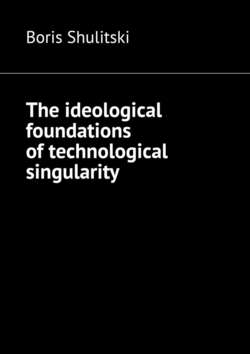Читать книгу The ideological foundations of technological singularity - Boris Shulitski - Страница 10
Chapter 1 Basic Axiomatics
1.6 Mathematics and Objective reality
ОглавлениеWhat is knowledge? It is useful to recall the statements of V.I. Lenin, written by him about the doctrine of the concept in Hegel’s “Science of Logic”: “Knowledge is a reflection of nature by man. But it is not simple, not direct, not integral reflection, but a process of a number of abstractions, formation, genesis of concepts, laws, and such concepts, laws (thinking, science = ‘logical idea’) encompass conventionally, approximately, the universal pattern of the evermoving and developing nature” (29, 164).In the same place, “abstractions reflect nature more deeply, or rather, in the more integral way. From living contemplation to abstract thinking and then from it to practice – this is the dialectical way of the truth cognition…” (29, 152). Abstract thinking, the creation of a theory, study of the properties of concepts do not tear knowledge away from the real world, but allows, if they are correct, to know it more profoundly, constitutes the necessary step of any knowledge.
According to the basic principles of dialectics, all processes and phenomena of actual reality are deeply correlated with each other (the principle of interconnection), besides, these are dynamic relations, according to the principle of development, change. The essence of the process of knowledge can be defined as the revealing, defining of these dynamic connections, as well as reflecting of the universal laws of the ever-moving and evolving nature. At the same time, one of the universal methods of cognition is the modeling of relations using a certain set of abstract model elements (for example, numbers or other signs), further, the transformation of these model structures in accordance with the laws of transformation that preserve the connections integral, obtaining new abstract structures, new sets of connections and the correlation of these new connections with objective reality.
Mathematics serves as one of the means of abstract modeling using the set of symbols and the rules for combining them. Mathematics is much more than science, because it is, according to N. Bor, the language of science (7). The defining characteristic of each specific mathematical discipline is a certain formal method, potentially allowing the existence of various material representations and consequently, practical applications. Whether this or that object, this or that phenomenon of the real world can be investigated using this mathematical method – this question is not solved by the nature of the given object or phenomenon, but by their formal structural properties (20).
What is the subject of mathematics research? According to F. Engels, “pure mathematics has as its object spatial forms and quantitative relations of the real world” (30-XX, 37). N. Bourbaki argue that “mathematical structures, strictly speaking, become the only mathematical objects” (9, 251). One can agree with this group of French mathematicians. However, where do these structures come from and how do they relate to the world of reality?
If these are abstractions of some sides of the real world, then the position of Bourbaki is quite consistent with the point of view of F. Engels. N. Bourbaki themselves wrote "…the main problem lies in the interaction of the experimental world and the mathematical one. The fact that there is a close connection between material phenomena and mathematical structures is what seems to be completely unexpectedly confirmed by recent discoveries of modern physics, but the profound reasons for this are completely unknown to us, and perhaps we will never know them” (9, 258). This is a pessimistic conclusion, and, according to academician B. V. Gnedenko, it means only that N. Bourbaki only superficially touched the most important question: what is the object of the mathematical study (17). They did not attempt to reveal the process of the basic concepts and basic tasks of mathematics formation in the historical aspect.
Such questions cannot arise in connection with the definition of F. Engels, since it already contains the statement that mathematical concepts are only abstractions derived from certain relations and forms of the real world, they are taken from the real world and therefore are naturally associated with it. In essence, this explains the amazing applicability of the results of mathematics to the phenomena of the world around us, explains the success of the process that we are now witnessing and which is called the “mathematization” of knowledge. A number of examples is known when abstractly created mathematical theories were far ahead of the discovery of the corresponding real physical processes in the field of natural science. “The amazing, incomprehensible efficiency of mathematics in natural science, the fact that its modern models often describe quite well the complex processes of material reality, evidence of the fact that that mathematics reflects not only the quantitative, but also to some extent qualitative aspect of the objective reality phenomena, and that was noticed yet by Kant and Hegel” (20, 16).
